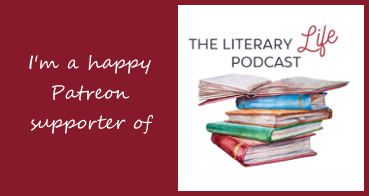I wrote the following a year ago on this date. It came up in my Facebook memories, and since I feel much the same today, I thought it worthy of posting here. It was good to revisit these ideas.
_____________________________________________________________
What follows is a long quote from C.S. Lewis’ book Reflections on the Psalms. I will follow it up with some context and my thoughts. (The bold of some sentences is my addition.)
One’s first impression is that the Jews were much more vindictive and vitriolic than the Pagans.…we cannot be certain that the comparative absence of vindictiveness in the Pagans, though certainly a good thing in itself, is a good symptom. This was borne in upon me during a night journey taken early in the Second War in a compartment full of young soldiers. Their conversation made it clear that they totally disbelieved all that they had read in the papers about the wholesale cruelties of the Nazi régime. They took it for granted, without argument, that this was all lies, all propaganda put out by our own government to “pep up” our troops. And the shattering thing was, that, believing this, they expressed not the slightest anger. That our rulers should falsely attribute the worst of crimes to some of their fellow-men in order to induce others of their fellow-men to shed their blood seemed to them a matter of course. They weren’t even particularly interested. They saw nothing wrong in it. Now it seemed to me that the most violent of the Psalmists—or, for that matter any child wailing out “But it’s not fair”—was in a more hopeful condition than these young men. If they had perceived, and felt as a man should feel, the diabolical wickedness which they believed our rulers to be committing, and then forgiven them, they would have been saints. But not to perceive it at all—not even to be tempted to resentment—to accept it as the most ordinary thing in the world—argues a terrifying insensibility. Clearly these young men had (on that subject anyway) no conception of good and evil whatsoever.Thus the absence of anger, especially that sort of anger which we call indignation, can, in my opinion, be a most alarming symptom. And the presence of indignation may be a good one. Even when that indignation passes into bitter personal vindictiveness, it may still be a good symptom, though bad in itself. It is a sin; but it at least shows that those who commit it have not sunk below the level at which the temptation to that sin exists—just as the sins (often quite appalling) of the great patriot or great reformer point to something in him above mere self. If the Jews cursed more bitterly than the Pagans this was, I think, at least in part because they took right and wrong more seriously. For if we look at their railings we find they are usually angry not simply because these things have been done to them but because these things are manifestly wrong, are hateful to God as well as to the victim.
Lewis is looking at the Psalms that call down curses on their enemies and thinking through how this might trouble believers. How could God’s chosen people do this kind of thing. He notes that some people might say, Well, this was pre-Christian times and even the pagans did this kind of stuff. So he goes searching in the pagan writings and says, “I can find in them lasciviousness, much brutal insensibility, cold cruelties taken for granted, but not this fury or luxury of hatred. I mean, of course, where writers are speaking in their own person; speeches put into the mouths of angry characters in a play are a different matter.”
How could this be? How could pagans be more tolerant than God’s own people? He says some other interesting things before you get to the part I quoted above, and boy howdy, I wish I had the time and energy to explain this more, but here goes something: In summary, the pagans might seem more tolerant because they didn’t care about good and evil. And this leads to some interesting ideas. For instance, he says: “It seems that there is a general rule in the moral universe which may be formulated ‘The higher, the more in danger’.” So what in the world does that mean? Or could it mean? This is what I’m thinking right now: In some areas there is way more temptation to sin because we care. Something matters to us. We have passion for it.
I hope you read all the quote above. I hope you read that story about the soldiers and really thought about it. And if you still need more context and want to think more about this, go read the book. But I’ll tell you what struck me immediately when I first read this a few nights ago: Often in my life, and in my husband Jack’s life , people have said, ‘Calm down, it’s no big deal, why are you getting so worked up about, let it go, it doesn’t matter…..’ And it has frustrated me that people (who I would have thought would) do not Care. They don’t really Care about what is Right and what is Wrong. That’s why they can stay calm. That’s why they tolerate bad behavior and lies. So be careful admiring the Patient and Tolerant. I’d rather keep Caring about what is Right and overcome whatever temptation and sin that that provokes. I’ve actually thought sometimes about just stopping Caring. It’s really frustrating, and often depressing. But I’m not going to do it. I will keep Caring. Caring about Truth and what is Right and Just and Fair.






